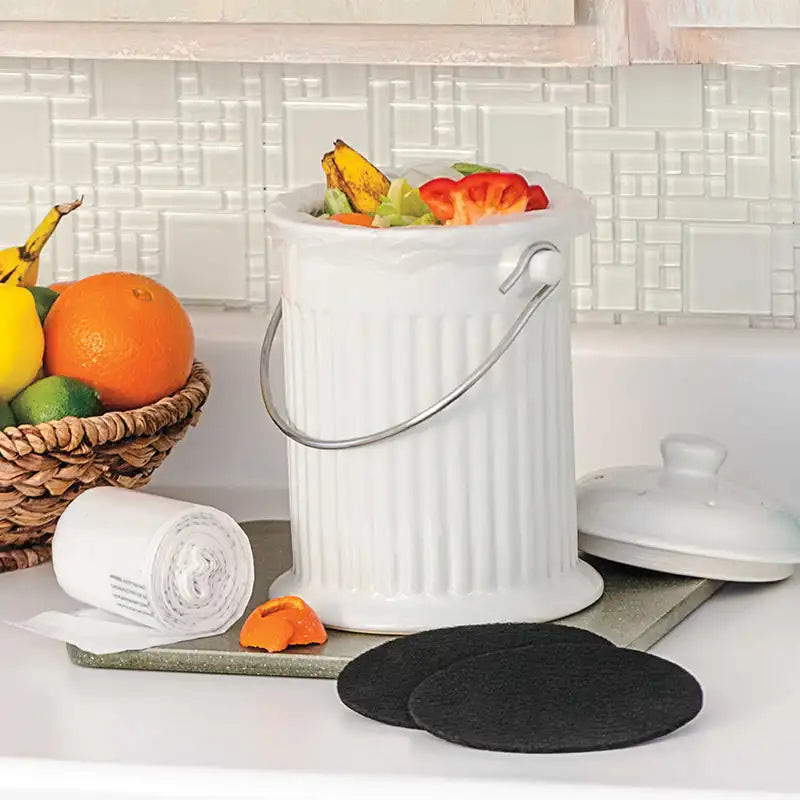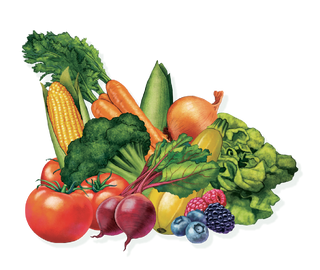Tall Tales & Rumors: How to Really Use Coffee Grounds
Q. Master Gardener Carol in Marshfield, Missouri writes: "I came across an article on a {quote} 'rural' website that says not to use coffee grounds in the garden. The author cites some studies, but I'm not convinced. I know that you advocate including coffee grounds in your compost, but the author says that caffeine is allelopathic and harmful to plants and worms."
A. You seem to have veered off the 'trustworthy internet site' path. I clicked on the link you provided, which I expected to contain the musings of a rural gardener, but instead consisted of multiple boxes of what I would call 'click bait'. One warned of "Five Reasons you Should Never Use Coffee Grounds in your Garden", but the box next to it headlined "27 uses for coffee grounds in the garden you'll actually want to try".
Hmmmm...
The question of coffee grounds being acidic has long been the leader of the pack in this discussion. Turns out that reliable sources agree that brewed coffee itself IS acidic, but that we coffee-drinkers retain most of that acidity, making the pH of spent coffee grounds just a little below neutral. Starbucks rates the grounds in their giveaway "Grounds for Your Garden" program at 6.8 on the pH scale, with seven, of course, being neutral. The lowest pH claimed by other sources seems to be 6.2.
But any brewed liquid left over in the pot WOULD be acidic, with a pH just above or below 5--enough to make plants like azaleas and blueberries very happy and make your hydrangeas bloom a blight blue. Same goes for unused coffee grounds; they are highly acidic.
I have always maintained that coffee grounds of any kind are nitrogen-rich, and excess nitrogen makes plants grow big, but can suppress flowering. In my mind, that makes late winter/early Spring the best time to use coffee grounds as fertilizer for Spring blooming plants. Their buds were set long before, so adding nitrogen at that point will feed the plants without interfering with flowering.
However, some sources suggest that the Nitrogen in coffee grounds is released slowly over time, which would make the timing of application a little looser. I will add that researching any part of this topic will leave you dazed and confused, with lots of contradictory advice, opinion and garden mythology.
Coffee grounds have long been hailed as a slug repellant when applied to the surface of the soil. But according to Oregon State University, a liquified form is the real deal, specifically a 2% solution of spent coffee grounds in water. When used as a soil drench this will deter and kill slugs. First it chases them away, then they slowly die of caffeine poisoning.
I was surprised to find some controversy about the effect of coffee grounds on worms, with one article warning that a small percentage of the earthworms that crawl into a caffeinated compost pile will perish unless there's lots of shredded paper in the pile. Say what?
The same article warns against using coffee grounds in a standard worm bin, as the red wrigglers used in worm bins are also sensitive to caffeine and you'll lose some of your worm stock. Horse hockey, say I! Other sources point out that earthworms like coffee grounds so much they pull them deeper into soil, where the worms spend much of their time.
My personal experience over 35 years and hundreds of piles is that coffee grounds are one of the best things to add to shredded leaves (or other shredded plant material) to supply the Nitrogen-rich 'wet greens' that combine with the dry brown material to create excellent compost. Just follow the basic rule of 25 to 40 parts of shredded leaves to five to ten parts of 'wet greens'. (I know that coffee grounds aren't green, but they still provide the Nitrogen and other nutrients necessary to get the shredded browns to compost quickly. And because it does happen fast, you're making the 'hot compost' that helps plants resist or defeat disease.)
Speaking of disease, an article by Japanese researchers published in the journal "Plant Signaling & Behavior" (available through The National Library of Medicine) explains that caffeine's {quote} "role is...to strengthen plants' defense capabilities directly as a toxicant to biologic attackers (allelopathy) and indirectly as an activator of defense systems." In short, their experiments found that caffeine fought off many of the worst underground pathogens that attack plants.
In summation: give priority to regular kitchen scraps in a worm bin, but always be sure to add some coffee grounds as a treat for your wormies. Small amounts of aged or composted coffee grounds are recommended for direct use in the garden as opposed to fresh. And you'll get better results if you cover the grounds with a little bit of soil or compost to help them release their nutrients faster, just as you would with granulated fertilizers.
Don't add coffee grounds to indoor house plants.
As to an allelopathic effect, coffee plants DO release compounds into the soil that can interfere with the growth of nearby plants, but there is great controversy about their grounds. The best advice is to let the grounds age or compost first; and don't allow them to touch any plant stems.
A. You seem to have veered off the 'trustworthy internet site' path. I clicked on the link you provided, which I expected to contain the musings of a rural gardener, but instead consisted of multiple boxes of what I would call 'click bait'. One warned of "Five Reasons you Should Never Use Coffee Grounds in your Garden", but the box next to it headlined "27 uses for coffee grounds in the garden you'll actually want to try".
Hmmmm...
The question of coffee grounds being acidic has long been the leader of the pack in this discussion. Turns out that reliable sources agree that brewed coffee itself IS acidic, but that we coffee-drinkers retain most of that acidity, making the pH of spent coffee grounds just a little below neutral. Starbucks rates the grounds in their giveaway "Grounds for Your Garden" program at 6.8 on the pH scale, with seven, of course, being neutral. The lowest pH claimed by other sources seems to be 6.2.
But any brewed liquid left over in the pot WOULD be acidic, with a pH just above or below 5--enough to make plants like azaleas and blueberries very happy and make your hydrangeas bloom a blight blue. Same goes for unused coffee grounds; they are highly acidic.
I have always maintained that coffee grounds of any kind are nitrogen-rich, and excess nitrogen makes plants grow big, but can suppress flowering. In my mind, that makes late winter/early Spring the best time to use coffee grounds as fertilizer for Spring blooming plants. Their buds were set long before, so adding nitrogen at that point will feed the plants without interfering with flowering.
However, some sources suggest that the Nitrogen in coffee grounds is released slowly over time, which would make the timing of application a little looser. I will add that researching any part of this topic will leave you dazed and confused, with lots of contradictory advice, opinion and garden mythology.
Coffee grounds have long been hailed as a slug repellant when applied to the surface of the soil. But according to Oregon State University, a liquified form is the real deal, specifically a 2% solution of spent coffee grounds in water. When used as a soil drench this will deter and kill slugs. First it chases them away, then they slowly die of caffeine poisoning.
I was surprised to find some controversy about the effect of coffee grounds on worms, with one article warning that a small percentage of the earthworms that crawl into a caffeinated compost pile will perish unless there's lots of shredded paper in the pile. Say what?
The same article warns against using coffee grounds in a standard worm bin, as the red wrigglers used in worm bins are also sensitive to caffeine and you'll lose some of your worm stock. Horse hockey, say I! Other sources point out that earthworms like coffee grounds so much they pull them deeper into soil, where the worms spend much of their time.
My personal experience over 35 years and hundreds of piles is that coffee grounds are one of the best things to add to shredded leaves (or other shredded plant material) to supply the Nitrogen-rich 'wet greens' that combine with the dry brown material to create excellent compost. Just follow the basic rule of 25 to 40 parts of shredded leaves to five to ten parts of 'wet greens'. (I know that coffee grounds aren't green, but they still provide the Nitrogen and other nutrients necessary to get the shredded browns to compost quickly. And because it does happen fast, you're making the 'hot compost' that helps plants resist or defeat disease.)
Speaking of disease, an article by Japanese researchers published in the journal "Plant Signaling & Behavior" (available through The National Library of Medicine) explains that caffeine's {quote} "role is...to strengthen plants' defense capabilities directly as a toxicant to biologic attackers (allelopathy) and indirectly as an activator of defense systems." In short, their experiments found that caffeine fought off many of the worst underground pathogens that attack plants.
In summation: give priority to regular kitchen scraps in a worm bin, but always be sure to add some coffee grounds as a treat for your wormies. Small amounts of aged or composted coffee grounds are recommended for direct use in the garden as opposed to fresh. And you'll get better results if you cover the grounds with a little bit of soil or compost to help them release their nutrients faster, just as you would with granulated fertilizers.
Don't add coffee grounds to indoor house plants.
As to an allelopathic effect, coffee plants DO release compounds into the soil that can interfere with the growth of nearby plants, but there is great controversy about their grounds. The best advice is to let the grounds age or compost first; and don't allow them to touch any plant stems.


